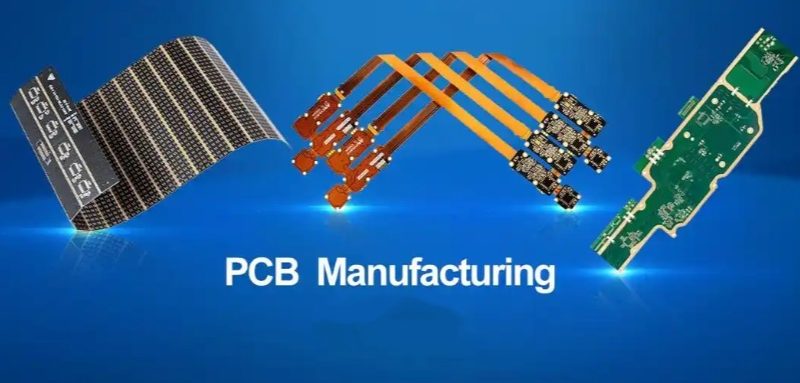
Introduction: Why Gerber Files Matter
Every PCB designer knows the frustration of a manufacturing error that could have been avoided. The secret to flawless PCB production? Perfect Gerber files. These digital blueprints tell manufacturers exactly how to build your board – get them wrong, and you risk costly delays or non-functional circuits.
In this comprehensive guide, we’ll break down everything you need to know about Gerber files in simple terms, from their technical fundamentals to practical tips for error-free manufacturing.
What Are Gerber Files? (PCB Manufacturing’s Universal Language)
Gerber files are the industry-standard format that translates your PCB design into manufacturing instructions. Think of them as a detailed recipe that tells fabrication machines:
-
Where to place copper traces
-
How to apply solder mask
-
Where to print silkscreen labels
-
Precise drilling locations
Key Facts:
-
File extension: .gbr or .ger
-
Current standard: RS-274X (replaced old RS-274-D)
-
Open ASCII vector format (human-readable)
-
Each layer gets its own file
The Critical Role of Gerber Files in PCB Production
From Digital Design to Physical Board
Your manufacturer doesn’t see your fancy CAD interface – they only see your Gerber files. These files go through a precise journey:
-
Laser Plotting: Converts digital files to physical film masks
-
Copper Etching: Uses the films to remove unwanted copper
-
Layer Alignment: Ensures perfect registration of all layers
-
Drilling: Uses your NC Drill file for hole placement
-
Final Inspection: Verifies against your original design
What Happens When Gerber Files Are Wrong?
-
Missing layers = Non-functional boards
-
Incorrect scaling = Misaligned components
-
Aperture errors = Broken traces or shorts
-
Wrong units = Catastrophic size mismatches
Generating Perfect Gerber Files: A Step-by-Step Guide
Follow this foolproof process to avoid manufacturing nightmares:
1. Set Up Your Export Correctly
-
Units matter: Confirm mm/inches match your design
-
Precision settings: Use 2:5 format (0.01mm resolution)
-
Layer selection: Don’t forget solder mask/paste!
2. Essential Files to Include
| File Type | What It Controls |
|---|---|
| Top Copper | Your component-side traces |
| Bottom Copper | Solder-side traces |
| Solder Mask Top/Bottom | Protective coating |
| Silkscreen Top/Bottom | Labels and logos |
| NC Drill File | All hole locations |
| Board Outline | Physical shape of PCB |
3. Must-Do Verification Steps
Before sending to your manufacturer:
-
Visual inspection: Use free viewers like GerberLogix
-
Design Rule Check (DRC): Catch spacing violations
-
Layer-by-layer review: Ensure nothing is missing
-
Manufacturer consultation: Confirm their requirements
Pro Tips for Flawless Gerber Files
-
Name files clearly: “TopCopper.gbr” beats “Layer1.gbr”
-
Include a readme.txt: Special instructions in plain English
-
Compress all files: Single ZIP prevents missing files
-
Provide supporting docs: Assembly drawings, BOM, etc.
Common Gerber File Mistakes (And How to Avoid Them)
-
Mixed units: Always double-check mm vs inches
-
Missing solder mask: Exposed copper causes shorts
-
Incorrect apertures: Pads render wrong size
-
Extra layers: Unneeded files cause confusion
-
Outdated format: Always use RS-274X
Beyond Gerber: Other Essential Manufacturing Files
While Gerber files are crucial, don’t forget:
-
NC Drill files (Excellon format)
-
Pick-and-place files for assembly
-
Bill of Materials (BOM)
-
Test point files for quality control
Conclusion: Your Roadmap to Perfect PCBs
Gerber files are the unsung heroes of PCB manufacturing. By following this guide, you’ll:
✔ Eliminate manufacturing errors
✔ Reduce costly revisions
✔ Speed up production timelines
✔ Build better relationships with manufacturers
Fuxinpcba specializes in Contract Manufacturing of Electronic Products, from prototypes to small & medium production volumes of PCB Assembly & Turnkey assembly/ box build. Our one-stop PCBA/OEM service support multiple markets, including industrial,medical,communications network, automotive,multimedia,consumer electronics,clean technology and oil&gas.

Recent Comments